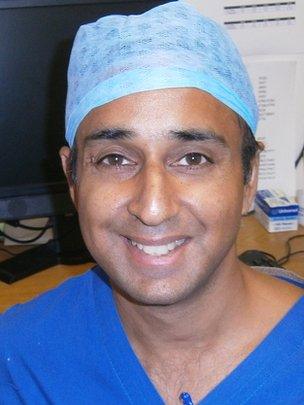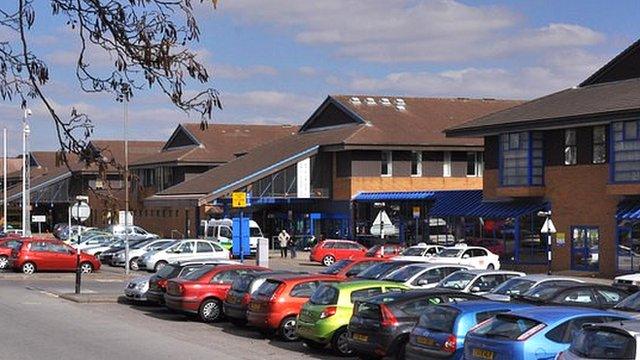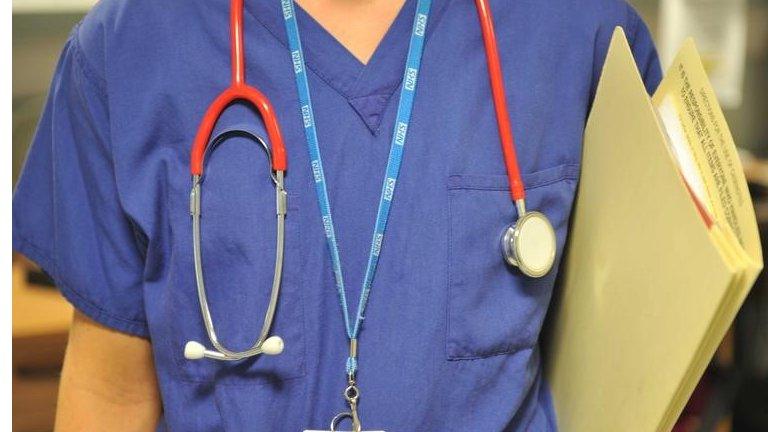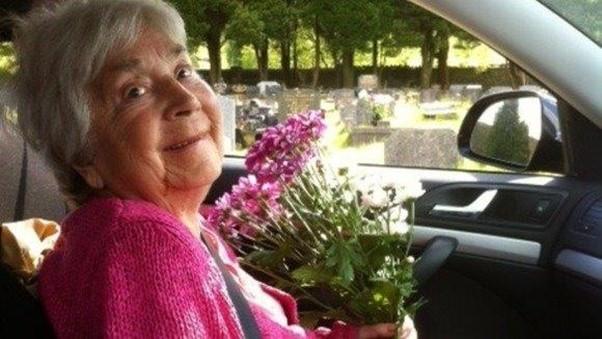Morriston Hospital's 'tiny surgery' cure hope for lymphoedema
- Published

Amar Ghattaura is the only trained super-microsurgeon in Wales
Patients with a painful, lifelong illness could be cured if a hospital becomes the first in Wales to offer surgery on a tiny scale.
Morriston hospital in Swansea wants to use super-microsurgery for lymphoedema patients who have damaged lymph nodes, often following cancer treatment.
It would see a surgeon joining miniscule lymph vessels to veins to help drain excess fluid that builds up.
The condition causes massively swollen limbs, poor mobility and infections.
It can also lead to anxiety and depression, costing the NHS about £6,000 for each patient every year.
Until now, people with the condition have had to wear compression garments for the rest of their lives and take medication.
But, if supported by other health boards, about 42 patients a year could be cured by the microsurgery under the all-Wales service.
Amar Ghattaura, a consultant plastic surgeon who is the only trained super-microsurgeon in Wales, said the surgery would "bypass the blockage", joining together narrow lymph vessels and veins.
"It's simple plumbing - diverting a blocked flow to where there is a good flow," he said.

What is lymphoedema?
Lymphoedema is caused by damage or disruption to the lymphatic system.
One function of the lymphatic system is to drain excess fluid from tissues. If the lymphatic system is disrupted or damaged, it can lose this ability and the excess fluid will cause the tissue to swell.
Primary lymphoedema develops at birth or shortly after puberty and is caused by faulty genes, secondary lymphoedema is caused by damage to the lymphatic system as a result of an infection, injury, trauma, or cancer treatment.
A bacterial infection of the skin called cellulitis is one of the most commonly reported infections in people with lymphoedema.

Earlier this year the health board was awarded a £250,000 Welsh government grant to help develop the technique as part of the Curing Lymphatic Programme (CLP).
If the programme is approved, Morriston Hospital would be one of only two UK hospitals to offer the surgery.
'Less infection'
In addition, a mobile unit, funded by the charity Tenovus and the Welsh government, would travel around Wales, scanning people to see if they are eligible for the surgery.
Mr Ghattaura said the benefits of the new service would be enormous.
"Patients who now need compression garments will either not need them at all or need them far less. For these patients, this is a cure," he added.
"There will also be less infection, if any, so they will not have to keep going to their GP for antibiotics. There will also be a reduced risk of skin problems like ulceration."
- Published16 October 2014

- Published16 October 2014

- Published17 September 2014

- Published13 May 2014
